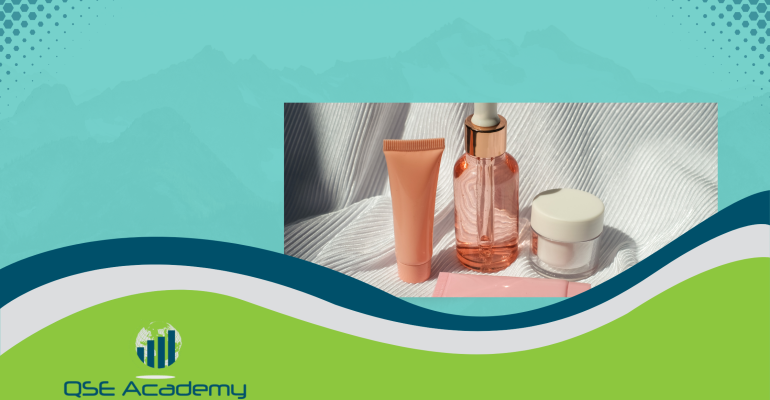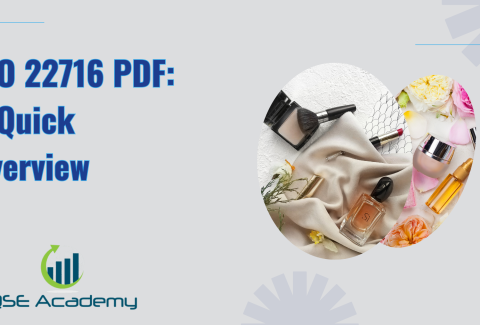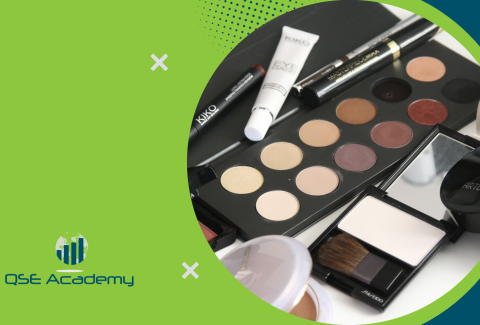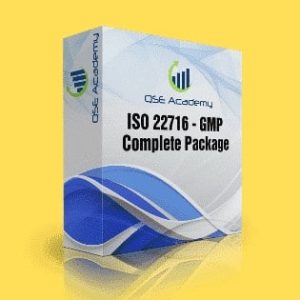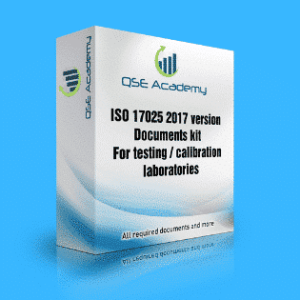What is GMP Certification for Cosmetics?
What is GMP Certification for Cosmetics?
Let’s start with the basics: GMP certification meaning. If you’re in the cosmetics business—or even just curious about how your favorite skincare products are made—you’ve probably heard the term “GMP certification” thrown around. But what does it actually mean? Let me break it down for you.
The Definition of GMP Certification
GMP stands for Good Manufacturing Practices, a set of guidelines designed to ensure that products are made consistently and meet quality standards. It’s like having a rulebook for how cosmetics should be manufactured, from the cleanliness of the facilities to the way products are tested before hitting the shelves.
Now, what about the “certification” part? Well, GMP certification meaning boils down to this: a third-party organization evaluates your manufacturing processes and confirms that you meet these strict guidelines. Think of it as a stamp of approval that says, “Yes, this brand takes quality and safety seriously.”
Why GMP Certification is Important in the Cosmetics Industry
Here’s the thing: cosmetics aren’t just about looking good—they’re applied directly to the skin, which means they need to be safe. Whether it’s a moisturizer, a lipstick, or a shampoo, customers trust that the product they’re using won’t cause harm. That’s where the GMP certification meaning becomes so critical. It ensures that every step of the production process is designed to minimize risks, prevent contamination, and guarantee consistency.
But it’s not just about safety. GMP certification also builds trust. When customers see that a product has been manufactured under certified conditions, they’re more likely to feel confident in your brand. And let’s not forget compliance—many countries and regions require GMP certification for cosmetics to even be sold in their markets.
That’s a quick dive into the GMP certification meaning—a combination of quality assurance, safety measures, and a commitment to doing things the right way. Now that we’ve laid the groundwork, let’s explore what goes into this certification process and why it’s such a game-changer for the cosmetics industry. Shall we?
The Components of GMP Certification for Cosmetics
Now that we’ve unpacked the GMP certification meaning, let’s dig into what it actually involves. Think of GMP as the backbone of a well-organized cosmetics manufacturing process. It’s all about ensuring that every step—big or small—meets strict standards for quality and safety. So, what are the key pieces that make up this certification? Let’s break it down.
Key Requirements of GMP Certification
At its core, the GMP certification meaning revolves around consistency and control. This means that every part of the manufacturing process, from sourcing ingredients to packaging the final product, needs to follow clear guidelines. Here are some of the essentials:
- Standard Operating Procedures (SOPs): These are step-by-step instructions that outline how tasks should be done. Think of them as your factory’s rulebook, covering everything from mixing ingredients to cleaning equipment.
- Quality Control Checks: Regular inspections ensure that every batch of products meets the same high standards. This helps catch any potential issues before products reach consumers.
- Traceability: GMP requires you to keep detailed records of every ingredient and process. Why? So you can trace any problems back to their source if something goes wrong.
Focus on Hygiene and Contamination Prevention
One of the most important aspects of the GMP certification meaning is maintaining a clean and safe manufacturing environment. Imagine this: you’re making a facial cream, but the workspace isn’t spotless. That increases the risk of contamination, which could harm your customers and your brand’s reputation.
To avoid this, GMP certification emphasizes:
- Clean Facilities: Floors, walls, and equipment must be easy to clean and free from contamination.
- Employee Hygiene: Workers need to follow strict hygiene practices, like wearing gloves, hairnets, and other protective gear.
- Controlled Environments: Temperature, humidity, and air quality all play a role in keeping products safe and stable.
The Role of Documentation
When it comes to GMP certification meaning, documentation is king. Keeping thorough, accurate records ensures that every step of your process is traceable and repeatable. This includes:
- Batch Records: Detailed logs for every batch produced, including the ingredients used and quality tests performed.
- Training Logs: Proof that employees have been properly trained in GMP standards.
- Deviation Reports: If something doesn’t go as planned, you’ll need to document what happened and how it was fixed.
Think of documentation as your safety net—it shows that you’re not just guessing but following a well-thought-out system.
By focusing on these components, you can see how the GMP certification meaning goes beyond just meeting basic standards. It’s about creating a manufacturing process that prioritizes safety, consistency, and quality at every turn. Ready to explore the benefits? Let’s dive into why this certification is such a smart move for cosmetic brands!
The Benefits of GMP Certification for Cosmetics
Let’s be real—getting certified takes effort, so why is it worth it? The GMP certification meaning isn’t just about following rules; it’s about setting your business up for success. Whether you’re a small startup or an established brand, the benefits of GMP certification are undeniable. Let’s break them down.
Building Trust with Consumers
Imagine walking into a store and seeing two similar skincare products. One proudly mentions it’s manufactured under GMP certification, and the other doesn’t. Which would you trust more? For most people, the certified product wins every time.
The GMP certification meaning is all about giving your customers peace of mind. It tells them that your products are made with care, in a clean environment, and meet strict safety standards. In a market filled with choices, this trust can make all the difference.
Meeting Legal and Regulatory Standards
If you dream of expanding your cosmetics brand to international markets, here’s some good news: GMP certification can help you get there. Many countries require GMP compliance before allowing products on their shelves. Without it, you could face roadblocks or even legal issues.
Think of GMP certification as your golden ticket. It ensures you meet the necessary regulations, which means fewer headaches and more opportunities to grow your business.
Enhancing Operational Efficiency
Here’s a benefit you might not expect: the GMP certification meaning extends to improving how your business runs. By following GMP guidelines, you’re essentially streamlining your operations. Clear documentation, consistent processes, and routine checks make everything run like clockwork.
When your team knows exactly what to do and when to do it, you’ll save time, reduce waste, and avoid costly mistakes. Plus, efficient operations can lead to better profit margins—who doesn’t want that?
Boosting Your Brand’s Reputation
Let’s face it: the cosmetics industry is competitive. To stand out, you need more than just great products—you need a strong reputation. GMP certification acts like a badge of honor for your brand. It shows customers, retailers, and partners that you’re committed to quality and safety.
This kind of credibility doesn’t just attract new customers; it keeps them coming back. And when word spreads that your brand is GMP-certified, it could open doors to partnerships and collaborations you hadn’t even considered.
Reducing Risk
Mistakes happen, but in the cosmetics industry, even small errors can have big consequences. Contaminated products or inconsistent quality can lead to recalls, lost sales, and damage to your brand’s reputation. Following GMP standards helps minimize these risks by putting preventative measures in place.
The GMP certification meaning is about being proactive, not reactive. It’s like having a safety net for your business—one that catches issues before they become costly problems.
In a nutshell, GMP certification isn’t just a requirement; it’s an opportunity. It builds trust, ensures compliance, boosts efficiency, and strengthens your brand. The effort you put in now will pay off in the long run, helping your cosmetics business grow and thrive. Ready to take the next step? Let’s explore how to achieve GMP certification!
How to Achieve GMP Certification for Cosmetics
If you’ve decided that GMP certification is the next step for your cosmetics business, congratulations! You’re on your way to building a stronger, safer, and more trusted brand. But now you might be wondering, “Where do I even start?” Don’t worry—I’ve got you covered. Here’s a step-by-step guide to help you achieve GMP certification and understand the process.
Step 1: Understand the GMP Certification Meaning and Requirements
Before diving into the process, it’s essential to familiarize yourself with what GMP certification meaning entails. In simple terms, it’s about creating and maintaining high standards in your manufacturing process. This includes hygiene, documentation, quality control, and employee training.
Take some time to review the specific requirements for GMP certification in the cosmetics industry. These guidelines can vary depending on your region and the certifying body you choose, so knowing the details is key.
Step 2: Conduct a Gap Analysis
A gap analysis is like a self-audit. It helps you figure out where your current practices fall short of the standards required for GMP certification. Look at everything—from how you source raw materials to how you package and label your products.
This step might feel a bit overwhelming, but it’s essential for creating a roadmap. Think of it as your starting point on the journey to certification.
Step 3: Develop or Update Your Documentation
If there’s one thing you’ll hear over and over when discussing GMP certification, it’s the importance of documentation. Every aspect of your manufacturing process needs to be documented clearly and accurately. This includes:
- Standard Operating Procedures (SOPs): Step-by-step instructions for every task.
- Quality Control Records: Logs of tests conducted to ensure product consistency.
- Training Records: Proof that your employees are trained in GMP standards.
Good documentation isn’t just about meeting requirements—it also helps your team work more efficiently and consistently.
Step 4: Train Your Employees
Your team plays a huge role in achieving and maintaining GMP certification. Every employee, from the production line to quality control, needs to understand GMP guidelines and how they apply to their specific role.
Make training sessions engaging and practical. Use real-life scenarios to help your team grasp the importance of following GMP standards.
Step 5: Upgrade Your Facilities (If Needed)
One critical aspect of GMP certification meaning is maintaining a clean and safe production environment. If your current facilities don’t meet hygiene or safety standards, you may need to make some upgrades. This could include:
- Improving ventilation or temperature control.
- Adding areas for employee hygiene, like handwashing stations.
- Ensuring all surfaces and equipment are easy to clean and maintain.
Step 6: Conduct Internal Audits
Before inviting a certification body to audit your operations, conduct an internal audit. This helps you identify and fix any remaining issues. Internal audits are like a rehearsal—they prepare you for the real thing.
Step 7: Work with a Certification Body
Once you’re confident that your processes meet GMP requirements, it’s time to contact a certification body. These organizations will perform an official audit to determine whether you qualify for GMP certification.
During the audit, the certifying body will review your facilities, processes, and documentation. Don’t stress if they find areas for improvement—you’ll typically have an opportunity to address these before final certification.
Step 8: Maintain Compliance
Achieving GMP certification isn’t the end of the journey—it’s the beginning of a continuous commitment to quality and safety. Regular audits, employee training, and process updates will help you stay compliant and retain your certification.
Getting GMP certification for your cosmetics business might feel like a big task, but breaking it into steps makes it much more manageable. With preparation, focus, and the right support, you’ll be on your way to creating products that meet the highest standards and build lasting trust with your customers. Ready to get started? Let’s tackle the challenges together!

